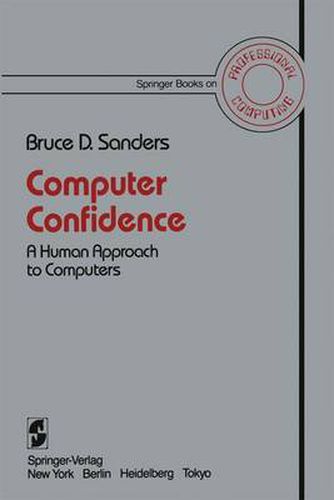Readings Newsletter
Become a Readings Member to make your shopping experience even easier.
Sign in or sign up for free!
You’re not far away from qualifying for FREE standard shipping within Australia
You’ve qualified for FREE standard shipping within Australia
The cart is loading…






This title is printed to order. This book may have been self-published. If so, we cannot guarantee the quality of the content. In the main most books will have gone through the editing process however some may not. We therefore suggest that you be aware of this before ordering this book. If in doubt check either the author or publisher’s details as we are unable to accept any returns unless they are faulty. Please contact us if you have any questions.
Much of the material in this book comes from what I’ve learned as I’ve traveled around the country conducting seminars about working profitably in the automated office. During the first few months of those seminars, there was a question I was asked more often than any other single question. I wa~ asked the question so often that I gave it a nickname. I called it my What The Devil question. Often in different words, usually at the morning break in the seminar, and almost always with an effort not to offend or embarrass, I was asked, What the devil is a psychologist doing conducting seminars about computer systems? I’m not asked What the Devil questions much anymore. Those familiar with office automation have come to realize that human factors chiefly determine whether a computer system will be a success or an expensive failure. So many computer systems have not gained acceptance by is employees because the planners didn’t use good psychological sense. That especially true as the computers move from the Engineering Department into the executive suites and the role of computers changes from just producing paper into also assisting in managerial decision making. One human factor I’ve learned is that people would much rather skip around in a book than read it from front cover to back cover directly. It’s true whether the book is a user manual for office equipment or a volume on computer systems for decision makers.
$9.00 standard shipping within Australia
FREE standard shipping within Australia for orders over $100.00
Express & International shipping calculated at checkout
This title is printed to order. This book may have been self-published. If so, we cannot guarantee the quality of the content. In the main most books will have gone through the editing process however some may not. We therefore suggest that you be aware of this before ordering this book. If in doubt check either the author or publisher’s details as we are unable to accept any returns unless they are faulty. Please contact us if you have any questions.
Much of the material in this book comes from what I’ve learned as I’ve traveled around the country conducting seminars about working profitably in the automated office. During the first few months of those seminars, there was a question I was asked more often than any other single question. I wa~ asked the question so often that I gave it a nickname. I called it my What The Devil question. Often in different words, usually at the morning break in the seminar, and almost always with an effort not to offend or embarrass, I was asked, What the devil is a psychologist doing conducting seminars about computer systems? I’m not asked What the Devil questions much anymore. Those familiar with office automation have come to realize that human factors chiefly determine whether a computer system will be a success or an expensive failure. So many computer systems have not gained acceptance by is employees because the planners didn’t use good psychological sense. That especially true as the computers move from the Engineering Department into the executive suites and the role of computers changes from just producing paper into also assisting in managerial decision making. One human factor I’ve learned is that people would much rather skip around in a book than read it from front cover to back cover directly. It’s true whether the book is a user manual for office equipment or a volume on computer systems for decision makers.